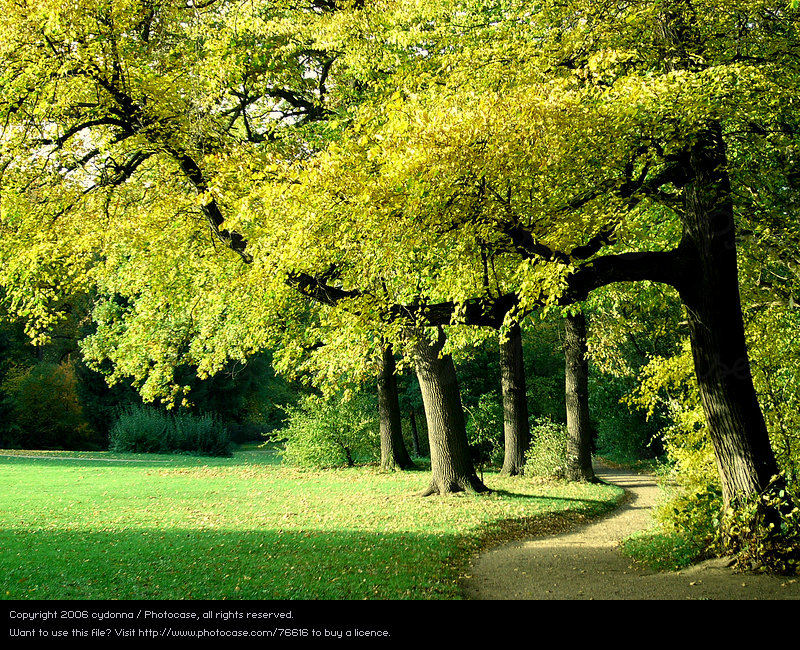تا همیشه
روزهای من...

اگر به خانه ی من آمدی، برای من ای مهربان چراغ بیار.
و یک دریچه که از آن به ازدحام کوچه ی خوشبخت بنگرم...
اینجا گاهی با خودم حرف می زنم، یا شایدم گاهی که حرفای دیگران که به دل بشینه.
اینجا شبیه خونه ی منه. خونه ی آدم ذهنشه و قلبش، مگه نه؟
بله، برای فهمیدن و شناخت من جای مناسبی نیست، ولی اگه دنبال نشونه واسه فهمیدنِ خودتون می گردید، شاید جرقه ای شه.
-
سهراب سپهری
(۶) -
روزنوشت
(۱۱۱) -
یک دنیا فکر!
(۶۴) -
دوست داشتنی های دنیای من
(۷) -
از هر دری سخنی
(۹) -
Notes to remember
(۱) -
سید علی صالحی
(۱) -
مولانا
(۳) -
شاملو
(۱) -
Studies!
(۱) -
Love
(۲)
- Esfand ۱۴۰۳ (۲)
- Bahman ۱۴۰۳ (۳)
- Dey ۱۴۰۳ (۱)
- Azar ۱۴۰۳ (۴)
- Aban ۱۴۰۳ (۶)
- Mehr ۱۴۰۳ (۶)
- Shahrivar ۱۴۰۳ (۱)
- Mordad ۱۴۰۳ (۳)
- Tir ۱۴۰۳ (۸)
- Esfand ۱۴۰۲ (۱)
- Aban ۱۴۰۱ (۲)
- Khordad ۱۴۰۱ (۱)
- Mehr ۱۳۹۹ (۱)
- Shahrivar ۱۳۹۹ (۲)
- Bahman ۱۳۹۸ (۵)
- Dey ۱۳۹۸ (۷)
- Azar ۱۳۹۸ (۱۱)
- Aban ۱۳۹۸ (۱۶)
- Mehr ۱۳۹۸ (۲۴)
- Shahrivar ۱۳۹۸ (۸)
- Mordad ۱۳۹۸ (۵)
- Khordad ۱۳۹۸ (۲)
- Esfand ۱۳۹۷ (۱)
- Bahman ۱۳۹۷ (۳)
- Dey ۱۳۹۷ (۲)
- Azar ۱۳۹۷ (۲)
- Aban ۱۳۹۷ (۲)
- Tir ۱۳۹۷ (۱)
- Khordad ۱۳۹۷ (۳)
- Esfand ۱۳۹۶ (۲)
- Bahman ۱۳۹۶ (۱)
- Azar ۱۳۹۶ (۱)
- Aban ۱۳۹۶ (۲)
- Mehr ۱۳۹۶ (۳)
- Tir ۱۳۹۶ (۱)
- Khordad ۱۳۹۶ (۱)
- Esfand ۱۳۹۵ (۱)
- Bahman ۱۳۹۵ (۲)
- Aban ۱۳۹۵ (۱)
- Mehr ۱۳۹۵ (۱)
- Tir ۱۳۹۵ (۱)
- Bahman ۱۳۹۴ (۲)
- Azar ۱۳۹۴ (۳)
- Aban ۱۳۹۴ (۲)
- Mehr ۱۳۹۴ (۳)
- Shahrivar ۱۳۹۴ (۴)
- Mordad ۱۳۹۴ (۱)
- Tir ۱۳۹۴ (۴)
- Ordibehesht ۱۳۹۴ (۸)
- Farvardin ۱۳۹۴ (۲)
- Bahman ۱۳۹۲ (۲)
- Dey ۱۳۹۲ (۲)
- Azar ۱۳۹۲ (۱)
- Aban ۱۳۹۲ (۳)
- Mehr ۱۳۹۲ (۸)
- Shahrivar ۱۳۹۲ (۳)
- Mordad ۱۳۹۲ (۶)
- Tir ۱۳۹۲ (۲)
- Khordad ۱۳۹۲ (۱)
- Ordibehesht ۱۳۹۲ (۱)
- Farvardin ۱۳۹۲ (۲)
- Esfand ۱۳۹۱ (۲)
- Bahman ۱۳۹۱ (۷)
- Dey ۱۳۹۱ (۷)
- Aban ۱۳۹۱ (۳)
- Shahrivar ۱۳۹۱ (۲)
- Tir ۱۳۹۱ (۲)
- Khordad ۱۳۹۱ (۳)
- Ordibehesht ۱۳۹۱ (۴)
- Farvardin ۱۳۹۱ (۱۰)
- Esfand ۱۳۹۰ (۱۴)
- Bahman ۱۳۹۰ (۱)
- Dey ۱۳۹۰ (۱۰)
- Azar ۱۳۹۰ (۴)
- Aban ۱۳۹۰ (۲)
- Mehr ۱۳۹۰ (۲)
- Shahrivar ۱۳۹۰ (۲)
- Mordad ۱۳۹۰ (۶)
- Tir ۱۳۹۰ (۳)
- Khordad ۱۳۹۰ (۴)
- Ordibehesht ۱۳۹۰ (۳)
-
03/12/15Missing Shiraz
-
03/11/29Happiness level!
-
03/11/08Beyond structures
-
03/11/02Sad truth of life
-
03/10/27Boundaries and wrath
-
03/09/22Connecting ideas
-
03/09/19Express what you think
-
03/09/06fearful
-
03/09/05Lets cut my hairs!
-
92/07/18کوچ!
-
95/04/05From Trees
-
94/09/15Explore
-
94/09/03Be kind
-
95/08/05گر صبر کنی ز غوره حلوا سازی
-
91/10/21Holds!
-
94/05/27Thanks for being there for me :-)
-
94/11/04انسان!
-
94/07/02پاییز
-
94/11/04انسان!
-
94/06/21روزنوشت!
-
95/12/09Label
-
95/08/05گر صبر کنی ز غوره حلوا سازی
-
94/09/15Explore
-
95/11/09از سبز به سبز
-
95/07/27Communication Models
-
94/07/23Feeling
-
94/11/04انسان!
-
94/09/03Be kind
-
98/09/04First Sight!
-
94/06/08Life is still beautiful :-)
-
98/07/29Even more love!
-
98/06/27Mirror
-
94/06/23Chain vs Ring
-
95/08/05گر صبر کنی ز غوره حلوا سازی
-
94/08/02باد آمد و همه رویا را با خود برد...
-
98/08/12Reborn
-
17 Mehr 03، 18:22 - مهسا:)) خب من مهسا هستم چندین سال بعد ...
-
15 Bahman 98، 17:06 - رهام Geramihaاحسنت :)
-
4 Azar 98، 19:49 - مرضیه .هالبته اینو بگم چون شما از واژهی ...
-
4 Azar 98، 19:44 - مرضیه .هاصلا اصل عشق همینه که تو نگاه اول ...
-
29 Mehr 98، 12:34 - رامین رزاقیاحسنت ، باریکلا
-
10 Mehr 98، 15:40 - NEMO The Nobodyکیستم من، آمدنم بهر چه بود!
-
27 Shahrivar 98، 11:31 - dokhiaroom ....به امید ان شهر خیالی ...که در همین ...
-
21 Bahman 97، 15:38 - mr pointهمیشه دل به دریا زدن ( و نزدن حتی ) جواب نیست
-
5 Dey 97، 10:32 - حسینمن دریافته ام که اگر به زندگی عشق ...
-
13 Aban 95، 17:27 - را ضیههله نومید نباشی که تو را یار براند ...
- مهسا (301)
In place!
خشم بیش از حد گرفتن وحشت آرد و لطف بی وقت هیبت ببرد؛ نه چندان درشتی کن که از تو سیر گردند و نه چندان نرمی که بر تو دلیر شوند.
درشتی و نرمی بههمدر به است
چو فاصد که جراح و مرهمنه است
درشتی نگیرد خردمند پیش
نه سستی که ناقص کند قدر ِ خویش
نه مر خویشتن را فزونی نهد
نه یکباره تن در مذلّت دهد
شبانی با پدر گفت ای خردمند
مرا تعلیم ده پیرانه یک پند.
بگفتا: نیکمردی کن نه چندان
که گردد خیره گرگ ِ تیز دندان
#یادمـبمونه!
سعدی
Speechless
وَالضُّحَى ﴿۱﴾
سوگند به روشنایى روز (۱)
وَاللَّیْلِ إِذَا سَجَى ﴿۲﴾
سوگند به شب چون آرام گیرد (۲)
مَا وَدَّعَکَ رَبُّکَ وَمَا قَلَى ﴿۳﴾
[که] پروردگارت تو را وانگذاشته و دشمن نداشته است (۳)
وَلَلْآخِرَةُ خَیْرٌ لَکَ مِنَ الْأُولَى ﴿۴﴾
و قطعا آخرت براى تو از دنیا نیکوتر خواهد بود (۴)
وَلَسَوْفَ یُعْطِیکَ رَبُّکَ فَتَرْضَى ﴿۵﴾
و بزودى پروردگارت تو را عطا خواهد داد تا خرسند گردى (۵)
أَلَمْ یَجِدْکَ یَتِیمًا فَآوَى ﴿۶﴾
مگر نه تو را یتیم یافت پس پناه داد (۶)
وَوَجَدَکَ ضَالًّا فَهَدَى ﴿۷﴾
و تو را سرگشته یافت پس هدایت کرد (۷)
وَوَجَدَکَ عَائِلًا فَأَغْنَى ﴿۸﴾
و تو را تنگدست یافت و بى نیاز گردانید (۸)
Mirror
به امید شهر خیالی
که شاید دارد
ابی زلال تر
سروی بلند تر
نوری روشن تر
خاکی پربار تر
رنگی زیباتر
فرشی پر نقش تر
دلی پر نور تر
که بگیرد
من، تو، او، ما، شما را در بر
آیدا شاه قاسمی 3>
Plant me
مرا نکاوید
واژه بودم
زنجیر کلمات گشتم
سخنی نوشتم که دیگران
با آرامش بخوانند
من اکنون بذری درستکار گشته ام
مرا بکارید
در زمینی استوار جایم دهید
نه در جنگلی که زیر سایه ی درختان معیوب باشم
جای من در کنار پنجره هاست.
احمدرضا احمدی
https://soundcloud.com/sepehr-tajpour-2-1/ovqkdhwm5ule
Silent Shouts
در پیش بیدردان چرا فریاد بی حاصل کنم
گر شکوه ای دارم ز دل با یار صاحبدل کنم
در پرده سوزم همچو گل در سینه جوشم همچو مل
من شمع رسوا نیستم تا گریه در محفل کنم
اول کنم اندیشه ای تا برگزینم پیشه ای
آخر به یک پیمانه می اندیشه را باطل کنم
زآن رو ستانم جام را آن مایه آرام را
تا خویشتن را لحظه ای از خویشتن غافل کنم
از گل شنیدم بوی او مستانه رفتم سوی او
تا چون غبار کوی او در کوی جان منزل کنم
روشنگری افلاکیم چون آفتاب از پاکیم
خاکی نیم تا خویش را سرگرم آب و گل کنم
غرق تمنای توام موجی ز دریای تو ام
من نخل سرکش نیستم تا خانه در ساحل کنم
دانم که آن سرو سهی از دل ندارد آگهی
چند از غم دل چون رهی فریاد بی حاصل کنم
رهی معیری
Label
I hate it when people label me, or each other! kierkegaard, well said that:
پ.ن.: قطعا نتونستم اونقدر که می خواستم از biasهای کلمات و نگاه ها، فاصله بگیرم. امیدوارم معلوم باشه چی نوشتم!
پ.ن. بعد: خیلی خوشحال کننده ست وقتی کسی بتونه حرف دلتو، تو قالب کلمات، جوری بیاره که به خوبی حرفتو توصیف کنه. این طور نیست؟ خب هست :دی
From Trees
Hermann Hesse (from Trees: Reflections and Poems):
For me, trees have always been the most penetrating preachers. I revere them when they live in tribes and families, in forests and groves. And even more I revere them when they stand alone. They are like lonely persons. Not like hermits who have stolen away out of some weakness, but like great, solitary men, like Beethoven and Nietzsche. In their highest boughs the world rustles, their roots rest in infinity; but they do not lose themselves there, they struggle with all the force of their lives for one thing only: to fulfill themselves according to their own laws, to build up their own form, to represent themselves. Nothing is holier, nothing is more exemplary than a beautiful, strong tree. When a tree is cut down and reveals its naked death-wound to the sun, one can read its whole history in the luminous, inscribed disk of its trunk: in the rings of its years, its scars, all the struggle, all the suffering, all the sickness, all the happiness and prosperity stand truly written, the narrow years and the luxurious years, the attacks withstood, the storms endured. And every young farmboy knows that the hardest and noblest wood has the narrowest rings, that high on the mountains and in continuing danger the most indestructible, the strongest, the ideal trees grow.
Trees are sanctuaries. Whoever knows how to speak to them, whoever knows how to listen to them, can learn the truth. They do not preach learning and precepts, they preach, undeterred by particulars, the ancient law of life.
A tree says: A kernel is hidden in me, a spark, a thought, I am life from eternal life. The attempt and the risk that the eternal mother took with me is unique, unique the form and veins of my skin, unique the smallest play of leaves in my branches and the smallest scar on my bark. I was made to form and reveal the eternal in my smallest special detail.
A tree says: My strength is trust. I know nothing about my fathers, I know nothing about the thousand children that every year spring out of me. I live out the secret of my seed to the very end, and I care for nothing else. I trust that God is in me. I trust that my labor is holy. Out of this trust I live.
When we are stricken and cannot bear our lives any longer, then a tree has something to say to us: Be still! Be still! Look at me! Life is not easy, life is not difficult. Those are childish thoughts. . . . Home is neither here nor there. Home is within you, or home is nowhere at all.
A longing to wander tears my heart when I hear trees rustling in the wind at evening. If one listens to them silently for a long time, this longing reveals its kernel, its meaning. It is not so much a matter of escaping from one’s suffering, though it may seem to be so. It is a longing for home, for a memory of the mother, for new metaphors for life. It leads home. Every path leads homeward, every step is birth, every step is death, every grave is mother.
So the tree rustles in the evening, when we stand uneasy before our own childish thoughts: Trees have long thoughts, long-breathing and restful, just as they have longer lives than ours. They are wiser than we are, as long as we do not listen to them. But when we have learned how to listen to trees, then the brevity and the quickness and the childlike hastiness of our thoughts achieve an incomparable joy. Whoever has learned how to listen to trees no longer wants to be a tree. He wants to be nothing except what he is. That is home. That is happiness.
Thanks to : http://eco-literacy.net/listening-to-the-trees/
پ.ن :البته نه اینکه تمام گفتههاش با لحظههای من سازگاره، اما این عظمت درخت... این زیباییهای درخت... اینکه اینقدر دوستداشتنی باشه و هست! نوشته رو برام خیلی دوستداشتنیتر می کنه.



